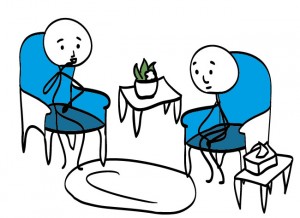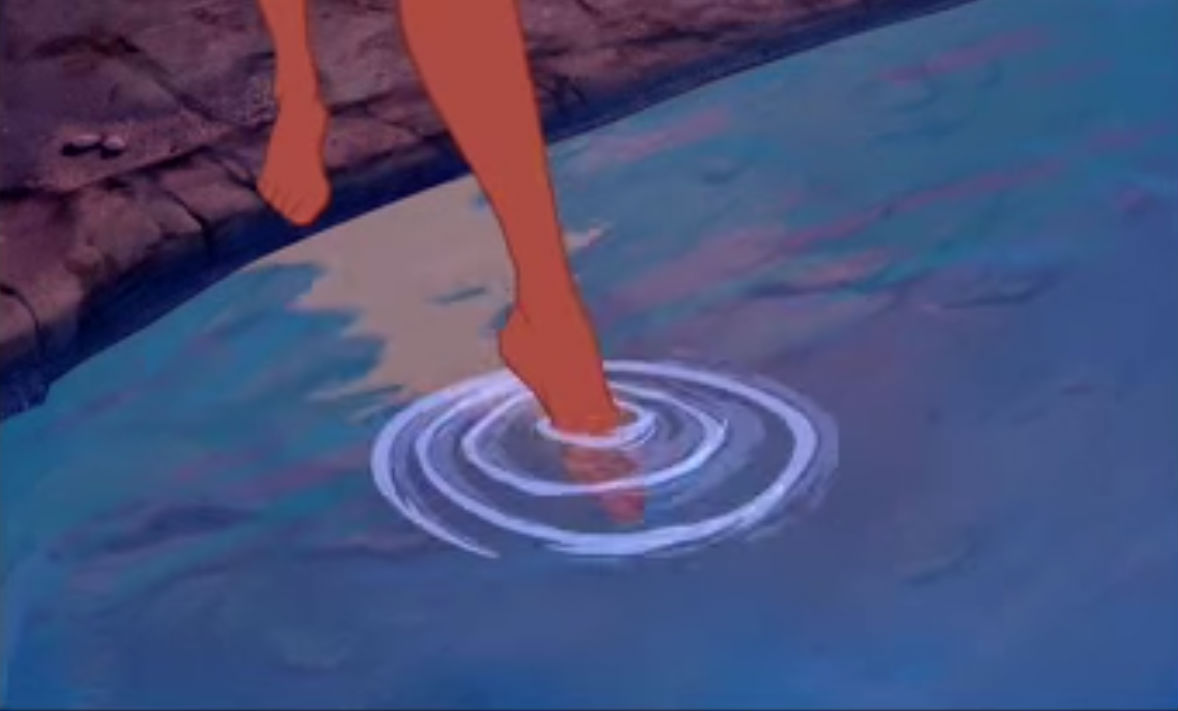No video today. Not just because I didn't remember to get my camera out before and after each one of the three meetings I've had, but also I've needed time to collect my thoughts on these meetings. Before each one I was flustered and nervous, scared even. And after, my mind was mostly white noise, digesting the 90 minutes of my life that were pretty important that had just happened.
Assessment one - the priest
This one was pretty fun. I met him at his work where he's a chaplain, and he was wonderful at putting me at my ease. It felt relaxed, which was a nice atmosphere when there was also a threatening undercurrent of assessment. We drank tea from dainty tea cups that he had been amused to find in the kitchen.
Regarding the things I had discussed with the rector, I did remember most of the time to 'answer the question', though I got more chatty towards to last half hour; and I remembered to make eye contact and smile. I only managed to cover 3 out of the 7 important points I had wanted to mention, but at least I got a few in there.
Here are some of the questions I could remember whilst on the bus on my way home, some based on the form I filled in that he had been sent - with timelines of my life, my faith, my church life, my calling, questions like "why do you feel you've been called to be ordained", "what is your greatest failure/your greatest success", employment history, and hobbies - and some based on things he'd read on this blog, which he had found because I mentioned it on the form; and some of the questions are basically based on the Criteria, and the sort of things that are important to cover when considering an application to ordination.
- would you be proud to represent the CofE
- how do you deal with stress
-
when has your trust in God been shaken
- what have you learnt from the pastoral assistant job so far
- why did you choose what you did on your form under 'your greatest failure'
-
why does being a good stage manager mean you think you'll be a good priest
- what has made you doubt your application to be ordained
- where do you find your stillness
- how do others perceive you
- do you have a life eg what do you do outside work/church
- what does your boyfriend think of your calling
-
why did you start your blog
- what do you mean when you say that doing this job feels like 'homecoming'
I think I did okay. We seemed to 'connect' as the rector put it, and I didn't say anything that made me wince or regret opening my mouth. It was nice that he'd shared a bit about himself as well, and I even found myself asking him a question or two, which made it feel much more conversational than interrogative.
But it's impossible to really know how well I did, because whilst the fact that it was a nice conversation is surely a good thing, you can really get on with someone, and still not think they're called to be a priest, or wouldn't be a good priest, and that's ultimately what he was assessing.
 Assessment two - the psychotherapist
Assessment two - the psychotherapist
This was terrifying. Honestly, she was fine and nice but she did her job very well, which meant she was ruthless at digging into what I was saying. Now, I felt with this one that I had an obligation to be completely genuine, a tad less guarded so that it could be a true assessment. I'm still debating whether being so unfiltered was a good idea, but that's what I did.
It was a bad start as I was late getting there. I didn't have the space that I did with the first one to build up to it and prepare my mind with how I would come across and what I wanted to say. But it was very different conversation than the first, which was to be expected. It was a purely psychological assessment rather than anything to do with God or the church. It was alm
ost clichéd that she started with 'tell me about your childhood' and at various points in later conversation seemed a little obsessed with sexuality, grilling me about my teenage romances which was probably the only point that I made the decision to keep some things private, which I don't think was unreasonable. I gave her answers enough without laying bear all the details.
I did cry once during the conversation. I had been giving a description of a part of my past and when she fed back I was overcome with fear that I had made the stupid mistake that I had been worried I would make ie. concentrating on the details and thereby risking her getting the wrong impression of me. At least I did remember to make eye contact, and I did manage to realise I was waffling and shut up on occasion.
Things we talked about included - incompetent managers, crisis, my family, my first memories, my friends, my boyfriend, coming out, previous partners, being bullied, self-development, anger, and change.
90 minutes was not enough time. There seemed vast swathes of who I am and what I've gone through that we didn't cover, which worries me. Again, I have no idea what the report is going to conclude. At a guess, if there were any issues to be raised these are my suspicions - authority, control, self-worth, pride, empathy. Now I'm not saying that these are issues I definitely have or definitely not have, they're just possible things that might get flagged, and only a rough guess. I'm not a professional psychologist, I don't know if these things were issues or not! We all have issues, it's whether they are big enough to be a problem that will be the stumbling block.
Assessment three - the lay person
For the last one, we met on Sunday evening, so I was a little tired after a day's work and I hadn't had a lot of time of switch gears. But overall I think it went well. She was very nice, made us tea, and she had prepared a set of questions, again based on the form and the criteria. A nice moment was when she said that she read my form and she felt that rather than it being just being a bunch of facts, it was written in such an open way that a "real person" was in there.
Again, I remembered eye contact and to just answer the question (mostly) but I definitely waffled more than I had with the chaplain. We talked about:
- my personal development through training and being a stage manager
-
the parallels of stage managers and priests
-
singing in worship
- leadership
- children's work
-
the Gabriel Collective
- this blog
- dealing with difficult people at church
- my brother, parents, and boyfriend
- the rector's role in my journey
- God working in my life through opportunity and bolt-out-the-blue moments
-
St James' Piccadilly
- my first children's Bible
- looking after one's physical and mental well-being
*
Blimey Charlie, they've whizzed by. I'm seeing the DDO again this week; he should have at least one report, if not two or even all three. I feel like I used to after exams - as if I should be nervous, but knowing that there's nothing I can do, so I'm suspended, hanging motionless waiting for the next step, the consequences of my actions.
I hope I've done okay. I hope I listened to the small voice of God in my heart and followed where God willed.
I won't be posting the full reports, but I will summarise them for you. So stay tuned!













